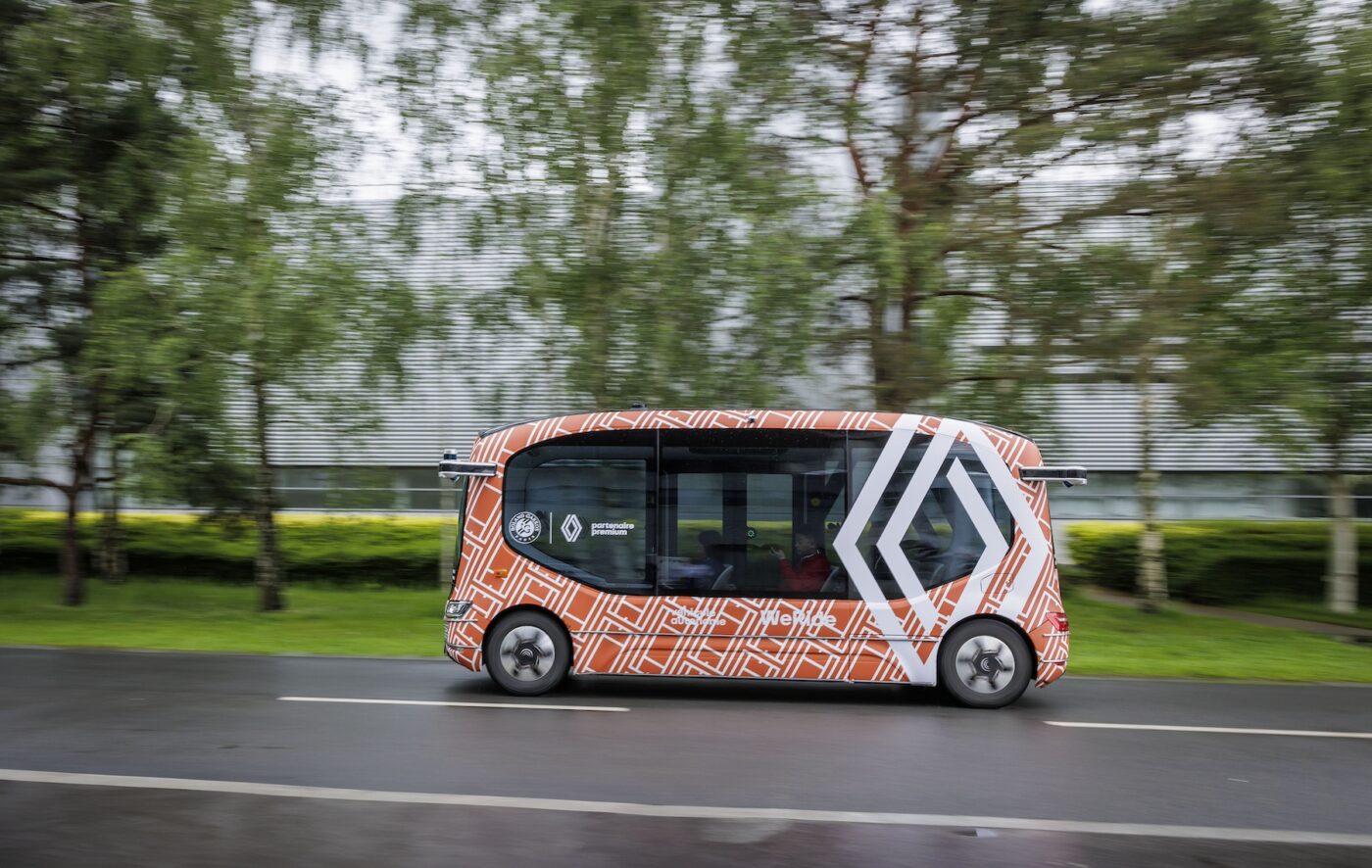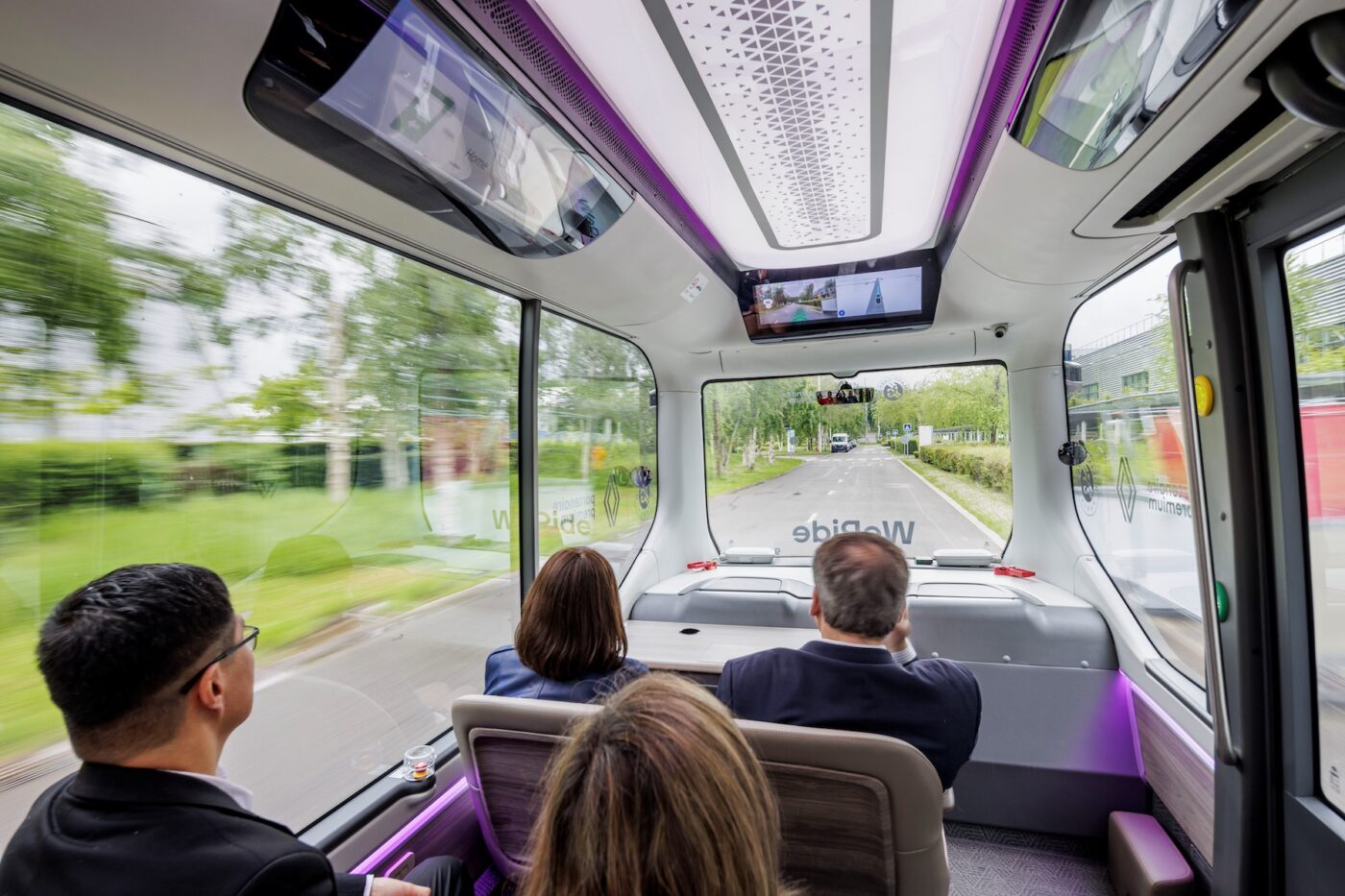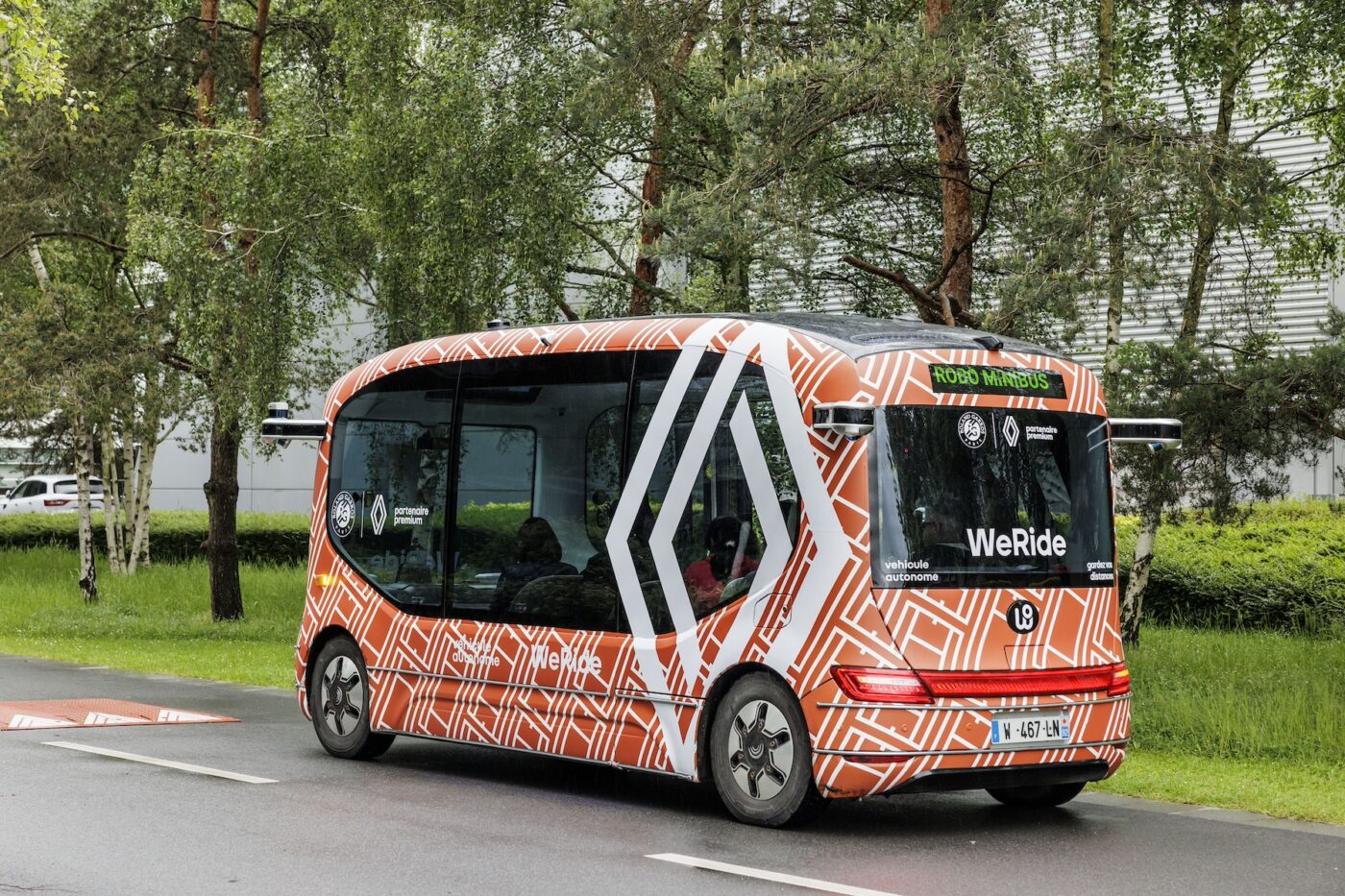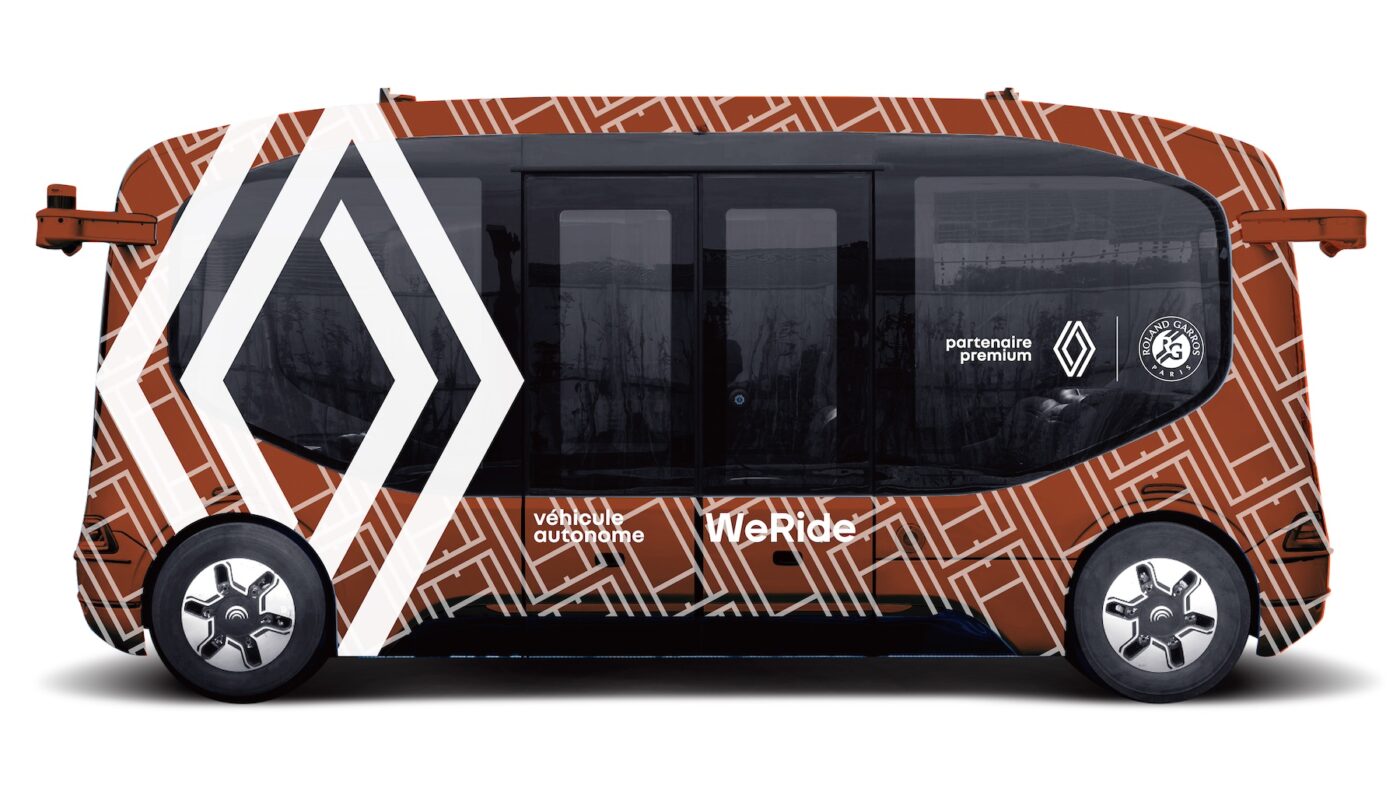Renault tests autonomous electric shuttles at the French Open
As a premium partner of the Grand Slam tennis tournament Roland Garros, better known as the French Open, Renault is carrying out a test run with autonomous electric shuttles together with WeRide. The aim is to demonstrate the maturity of new technologies for automated public transport services. From 26 May to 9 June 2024, the highly automated shuttle service will chauffeur guests from the P2 car park at Bois-de-Boulogne to the Roland Garros stadium. At the end of the matches, the same service will take tennis fans to Place de la Porte d’Auteuil or back to car park P2. The first pictures show a shuttle with a tennis court look on the outside.
As part of this, Renault is launching a new partnership with autonomous driving specialist WeRide. The aim is the large-scale commercial deployment of vehicles with level 4 autonomy, meaning vehicles that are capable of autonomously handling driving situations within a predefined area with remote monitoring, without the need for a driver on board.
In view of the future demand for autonomous mobility in public transport, the venture capital fund Alliance Ventures, founded by the Renault-Nissan-Mitsubishi Alliance, invested in the young company WeRide back in 2018. Since then, WeRide has become a major player with more than 700 autonomous vehicles in operation, including 300 minibuses. The fleet has already covered more than 28 million kilometres in Asia, the Middle East and North America and will soon expand its activities in Europe with the Renault Group.
“Renault Group is moving forward to implement its autonomous vehicle strategy. As a result, thanks to our experiments and our partners, the best in their fields, we will be in a position, well before the end of this decade, to propose a highly relevant range of autonomous, low-carbon miniBuses to meet the growing needs of the regions,” says Gilles Le Borgne, Chief Technology Officer of the Renault Group.




Renault Group is convinced of the benefits of autonomous public transport and has been conducting trials for several years to find the best response to local needs. These include, for example, the ‘Mach 2’ project announced in 2023, which aims to integrate a fleet of automated electric minibuses into the public transport network in Châteauroux, France, from 2026.
The aim of the Renault Group is to use these trials to offer a robotised electric minibus platform based on the new Renault Master. This should be able to accommodate automation solutions from specialised partners such as EasyMile, Milla and WeRide.
In future, autonomous minibuses will take over some of the passenger transport around the clock. In terms of costs and CO2 emissions per passenger, they offer an emission-free alternative or an efficient addition to the existing mobility infrastructure, including trains, trams and buses. According to Renault, the additional costs of robotisation and automation will be offset by the elimination of drivers. A remote monitoring system is sufficient for the operation of such a vehicle fleet.
Author: Florian Treiß




0 Comments